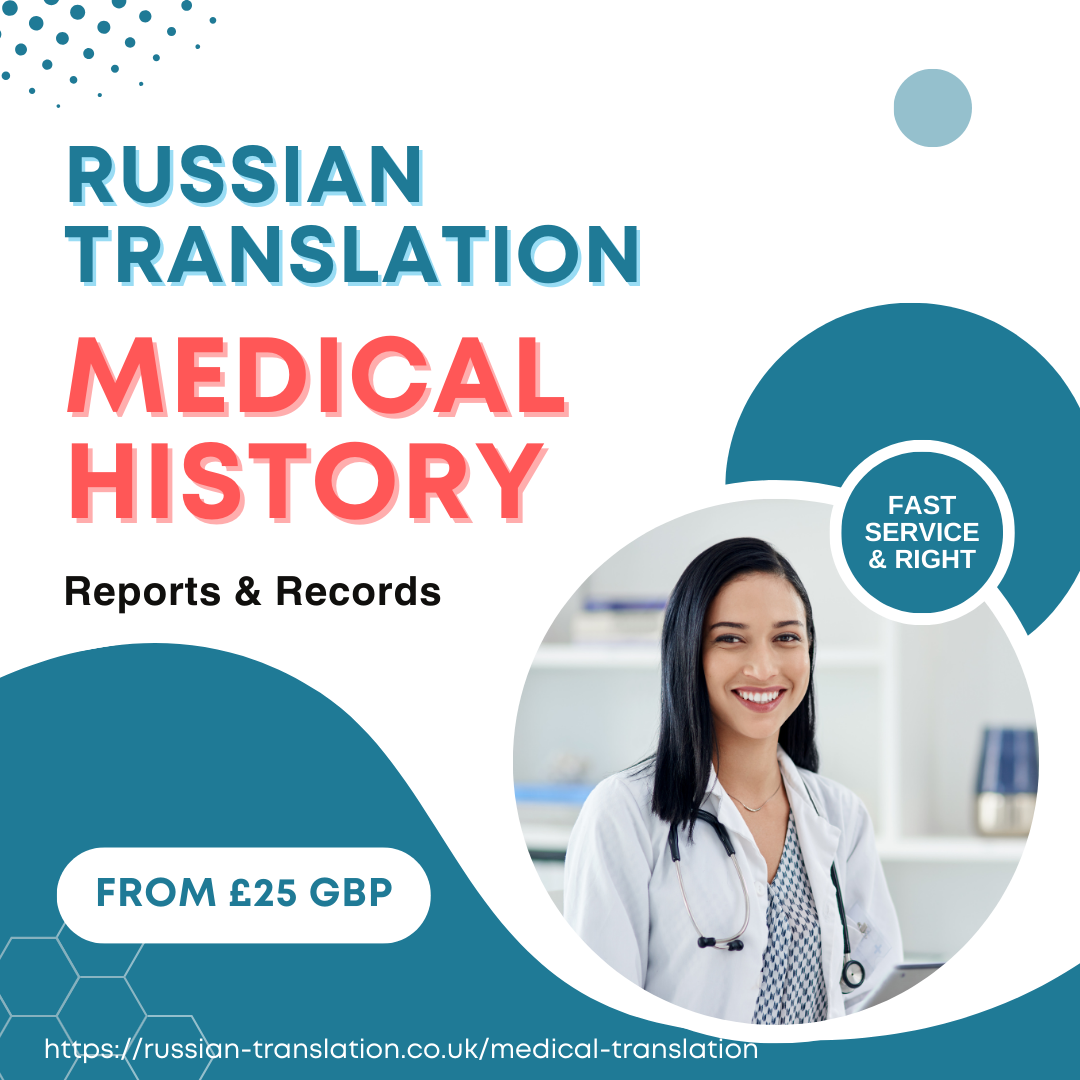Russian Translation of Medical History Documents in the UK
In an increasingly globalized world, the need for effective communication across different languages has never been more critical, especially in the healthcare sector. The United Kingdom, with its diverse population and international healthcare collaborations, often requires accurate translation services for medical history documents. This article explores the significance of Russian translation of medical history documents in the UK, detailing the types of documents translated, the institutions that require these services, and the essential elements that should be translated for accurate medical communication.
Russian translation services in the UK
Russian translation of medical documents in the UK
Russian document translation in the UK
Russian certified translation of certificates in the UK
English to Russian translation of medical documents in the UK
Russian to English translation of medical documents in the UK
Russian to English translation services in the UK
Russian translation of legal documents in the UK
Russian translation of financial documents in the UK
Russian translation services in the UK
Russian translation of medical documents in the UK
Russian document translation in the UK
Russian certified translation of certificates in the UK
English to Russian translation of medical documents in the UK
Russian to English translation of medical documents in the UK
Russian to English translation services in the UK
Russian translation of legal documents in the UK
Russian translation of financial documents in the UK

The Need for Russian Translation of Medical History Documents
The UK hosts a significant number of Russian-speaking individuals, including immigrants, refugees, and international students, who may require healthcare services. Accurate translation of medical history documents from English to Russian and vice versa is crucial for several reasons:
- Patient Safety: Miscommunication in medical histories can lead to incorrect diagnoses, inappropriate treatments, and potential harm to patients.
- Legal Compliance: In many cases, translated medical documents are legally required for patient care, insurance claims, and legal proceedings.
- Quality of Care: Healthcare providers need comprehensive and accurate information to deliver the best possible care.
Types of Medical History Documents Translated
Various types of medical history documents are translated in the UK, depending on the needs of the patient and the requirements of the healthcare provider. These documents include:
- Patient Medical Records: These include detailed histories of illnesses, treatments, surgeries, and medications.
- Diagnostic Reports: X-rays, MRI scans, lab test results, and other diagnostic reports.
- Treatment Plans: Detailed plans for ongoing treatments, including medication schedules and therapy sessions.
- Consent Forms: Documents that require patient consent for treatments or procedures.
- Insurance Forms: Documents related to medical insurance claims and coverage.
- Legal Documents: Such as affidavits, court orders, and legal correspondence related to medical cases.

Institutions Requiring Russian Translation of Medical History Documents
Several offices, departments, agencies, hospitals, and clinics in the UK require the translation of medical history documents into Russian. These institutions include:
- National Health Service (NHS) Hospitals: Many NHS hospitals serve diverse populations and require translated documents for patient care.
- Private Clinics and Hospitals: These institutions often cater to international patients and require accurate translations for continuity of care.
- Immigration Offices: For refugees and immigrants, translated medical histories are often required for visa applications and asylum claims.
- Insurance Companies: Accurate translations are necessary for processing insurance claims and determining coverage.
- Legal Firms: In cases involving medical malpractice or personal injury, legal firms may require translated medical documents.
- Educational Institutions: Universities and colleges with international students may need translations for health services and accommodations.
Essential Elements to Translate in Medical History Documents
For the translation of medical history documents to be effective, certain key elements must be accurately translated:
- Patient Identifiers: Full name, date of birth, and other identifying information.
- Medical History: Detailed history of past and current illnesses, surgeries, allergies, and medications.
- Diagnostic Information: Results of tests, scans, and other diagnostic procedures.
- Treatment Details: Specifics of treatments received, including medications, dosages, and therapy sessions.
- Provider Information: Names and contact details of healthcare providers involved in the patient’s care.
- Consent and Authorization: Clear translations of consent forms and authorizations for treatments or procedures.
The provision of Russian translation services for medical history documents in the UK is essential for ensuring patient safety, legal compliance, and the delivery of high-quality healthcare. By understanding the types of documents that need translation, the institutions that require these services, and the critical elements that must be accurately translated, healthcare providers and translation services can work together to bridge language barriers and enhance patient care. As the UK continues to serve a diverse population, the role of accurate medical translation services will only grow in importance, highlighting the need for continued investment and improvement in this critical area.
Featured articles:













